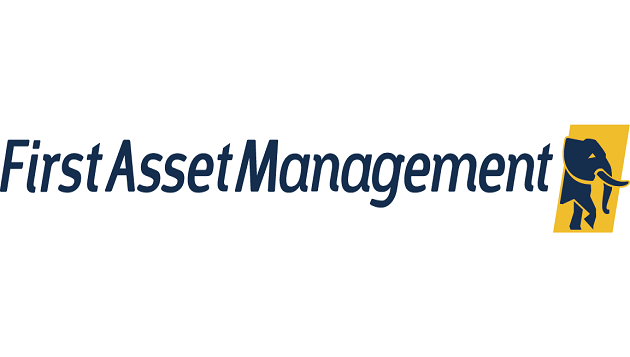News
“My Watch”: Court Orders Police, DSS to Seize OBJ’s New Book

Olusegun Obasanjo, former president of Nigeria, has been found guilty of contempt for publishing his memoirs “My Watch” by a high court of the federal capital territory.
And the court has also ordered the police, Department of State Service (DSS), and Nigeria Customs Service to confiscate the book, while also restraining media houses from publishing excerpts.
On December 5, an interim order restraining the former president from publishing his memoirs, My Watch, was given by Valentine Ashi, a justice of the Abuja high court.
On Tuesday however, the former president went ahead to launch the book, arguing that it had already been published before the court’s order.
But on Wednesday, Justice Valentine Ashi of the Federal Capital Territory High Court ordered security agents, including the police and operatives of the Department of State Service, to confiscate the latest book.
The judge of the FCT Wuse Zone II court said the publication of the book, which was presented to the public on Tuesday in Lagos, contravened the order of the court restraining the publication.
Justice Ashi also gave Obasanjo 21 days within which to explain why he should not be punished for flouting the court order.
He ordered that the enrolled orders of the court be served on all media houses in the country and be equally served on the defendant by publication in two national daily newspapers.
The judge held, “I hold the defendant not only in contempt of the court, but to show cause why he should not be punished for contempt and ordered to undo what he has wrongly done.
“The defendant, Chief Olusegun Obasanjo, shall be given 21 days, from the day this order is served on him, to show cause, via affidavit, why he should not be punished for contempt committed by publishing and distributing for sale to the public, the book, My Watch, in plain disregard of the pendency of substantive suit and the order of this court made on December 5, 2014 restraining him from doing so.
“The defendant, whether by himself, agents, servants, privies or whatever name called, is hereby restrained from further publication or offering for sale or distribution, in any way or manner, the book called My Watch or the like of the visual or written materials which contains a re-publication or statement extracted from the letter referred to by the plaintiff.”
The judge had on December 5 restrained Obasanjo from going ahead with the publication pending the determination of the N20bn libel suit instituted against him by a member of the Peoples Democratic Party in Ogun State, Buruji Kashamu.
Kashamu’s lawyer, Dr. Alex Iziyon (SAN), had in his ex parte application before the court on December 5, argued that Obasanjo should be restrained from publishing the book since the content related to the subject matter of the libel suit.
The content of the book was said to be related to a letter dated December 2, 2013 written by Obasanjo to President Goodluck Jonathan, in which Kashamu was described by the former President as a fugitive wanted for drug offences in the United States of America.
Iziyon had argued that since part of the content of the autobiography related to the December 2, 2013 letter, which is the subject matter of the libel suit, it was wrong for Obasanjo to be allowed “to proceed to comment on, write books about or make publications on the issue yet to be decided by the court.”
The court had after granting Kashamu’s application and by making the restraining order on December 5, fixed Wednesday for the continuation of the substantive libel suit.
But Obasanjo had on Tuesday made public presentation of the book, arguing at the venue of the event that the book had been published before the court was misled into making the orders.
He also said the judge ought to be punished for making such order.
The court on Wednesday heard Iziyon and Obasanjo’s lawyer, Realwon Okpanach, on the plaintiff’s motion for interlocutory injunction, and motion for order to set aside the earlier interim orders.
In his ruling, Justice Ashi held that it was wrong for Obasanjo to have proceeded to publish the book despite the fact that a libel suit, which subject matter formed part of the content of the book, was still pending before the court.
The judge said the orders he made on December 5 were still pending.
News
SERAP Sues NNPC over Alleged Missing ₦500Bn, Seeks Accountability

Socio-Economic Rights and Accountability Project (SERAP) has filed a lawsuit against the Nigerian National Petroleum Company (NNPC) Limited over its failure to account for the alleged missing ₦500 billion, which the company reportedly failed to remit to the Federation Account between October and December 2024.

SERAP’s legal action comes after allegations made by the World Bank, which revealed that out of the ₦1.1 trillion generated from crude sales and other income sources in 2024, NNPC only remitted ₦600 billion.
This left a deficit of ₦500 billion, which remains unaccounted for.
According to the lawsuit filed at the Federal High Court in Lagos on Friday, the organisation is demanding that NNPC explain the whereabouts of this missing amount.
The suit, number FHC/L/MSC/553/2025, seeks to compel NNPC to account for the missing funds.
In the legal documents, SERAP is asking for an order of mandamus to direct NNPC to account for the alleged missing ₦500 billion.
The organisation also wants the court to instruct NNPC to invite appropriate anti-corruption agencies to investigate the spending and whereabouts of the funds.
Furthermore, SERAP requests that those responsible for the missing money be identified, held accountable, and handed to relevant authorities for investigation and prosecution.
The lawsuit follows NNPC’s response to SERAP’s Freedom of Information (FoI) request, where the company argued that the FoI Act does not apply to it.
NNPC’s lawyers, Afe Babalola and Co, claimed that the company is exempt from the FoI Act.
SERAP, however, argues that the NNPC must comply with the Nigerian Constitution and the Freedom of Information Act, along with international human rights and anti-corruption standards, in exercising its statutory functions.
In the suit, SERAP emphasizes that the missing funds have significantly contributed to Nigeria’s economic instability, including the country’s high deficit spending and crippling debt crisis.
The organisation argues that the NNPC’s failure to remit these funds has worsened an already precarious economic situation.
SERAP also stresses that the missing oil revenues reflect a broader failure in NNPC’s accountability and transparency. The organisation highlights that the company’s continuing disregard for these principles damages the country’s economic well-being and governance systems.
The lawsuit also references a recent Supreme Court ruling, which declared that the Freedom of Information Act applies to public records in the Federation, including those kept by NNPC. SERAP calls on the court to enforce the application of this ruling in the case at hand.
The suit filed on behalf of SERAP by its lawyers, Kolawole Oluwadare, Ms Oluwakemi Oni, and Ms Valentina Adegoke, read in part, “Nigerians continue to bear the brunt of these missing public funds from the NNPCL meant for the economic development of the country.”
“There is a legitimate public interest in providing the details sought. The NNPC has a legal responsibility to account for and explain the whereabouts of the missing oil money.”
“The country’s oil wealth ought to be used solely for the benefit of the Nigerian people, and for the sake of the present and future generations.”
“Without the full recovery and remittance of the missing ₦500 billion oil revenues, the dire economic situation may worsen and Nigerians will continue to be denied access to basic public goods and services.”
“Nigerians have the right to know why the NNPCL failed to remit the subsidy removal savings to the Federation Account, and why the NNPCL is deliberately denying states and local governments their allocations from the Account, contrary to the provisions of the Nigerian Constitution.”
“The failure by the NNPCL to remit the money to the Federation Account is a grave violation of the public trust and the provisions of the Nigerian Constitution, national anticorruption laws, and the country’s anticorruption obligations.”
“Despite the country’s enormous oil wealth, ordinary Nigerians have derived minimal benefit from oil money primarily because of widespread grand corruption, and the entrenched culture of impunity of perpetrators.”
“Combating the corruption epidemic in the oil sector would alleviate poverty, improve access of Nigerians to basic public goods and services, and enhance the ability of the government to meet its human rights and anti-corruption obligations.”
“The Nigerian Constitution, Freedom of Information Act, and the country’s anti-corruption and human rights obligations rest on the principle that citizens should have access to information regarding the spending of their commonwealth.”
“The Auditor-General of the Federation and Nigeria Extractive Industries Transparency Initiative (NEITI) have for many years documented reports of disappearance of oil money from the NNPCL.”
“The World Bank recently disclosed that out of the N1.1tn revenue from crude sales and other income in 2024, the NNPCL only remitted N600bn, leaving a deficit of ₦500bn unaccounted for.”
“The revenue and other income were expected to be paid into the Federation Account and shared by all levels of government but the NNPCL reportedly failed to do so.”
“SERAP notes that Section 15(5) of the Nigerian Constitution requires public institutions to abolish all corrupt practices and abuse of power.”
“Section 13 of the Nigerian Constitution imposes clear responsibility on the NNPCL to conform to, observe and apply the provisions of Chapter 2 of the Constitution.”
“Nigeria has made legally binding commitments under the UN Convention against Corruption to ensure accountability in the management of public resources. Articles 5 and 9 of the UN Convention against Corruption also impose legal obligations on the NNPCL to ensure proper management of public affairs and public funds.”
“These commitments ought to be fully upheld and respected.”
“The missing oil revenue has also impeded Nigerians’ ability to enjoy their economic and social rights, and denied them access to essential public goods and services, especially at the time of the cost of living crisis in the country.”
“Had the NNPCL accounted for and remitted the alleged missing ₦500 billion to the Federation Account, it is likely that more funds would have been allocated to the fulfilment of economic and social rights, such as increased spending on public goods and services.”
“The Freedom of Information Act, Section 39 of the Nigerian Constitution, article 9 of the African Charter on Human and Peoples’ Rights and article 19 of the International Covenant on Civil and Political Rights guarantee to everyone the right to information on the whereabouts of the missing ₦500 billion of oil revenue.”
No date has been fixed for the hearing of the suit.
News
Ikeja Computer Village Begins Biometrics Registration to Tackle Crime

The leadership of Computer Village, Ikeja, has begun a biometric registration and enumeration exercise to sanitise the market, curb criminal activity, and restore investor confidence.

In a statement, Abisola Azeez, Iyaloja, described the initiative as part of a broader rebranding effort to address issues like phone snatching, fraudulent technicians, and substandard goods.
It stated, “The market’s leadership announced the move after a recent security incident led the Lagos State Task Force to consider a complete shutdown. However, market representatives intervened to safeguard legitimate traders. Under the new rules, only registered vendors with ID cards displayed at their stalls will be allowed to operate.
Approved street setups will be limited to plastic chairs, show glasses, and umbrellas, while wooden structures and open flames are banned to reduce fire hazards.”
Adeniyi Olasoji, baba Oja, noted the market’s damaged image, emphasising new security measures like CCTV, emergency alert systems, and increased collaboration with law enforcement.
“Other leaders, including Prince Tony Nwakeze, Ralph Chibuzor, Ben Onuorah, Nofiu Akinsanya, and Ikani Tony, affirmed the move as essential for transforming Computer Village into a structured, globally competitive digital hub.
The registration will be completed within two months, after which only verified traders will be allowed to operate.
Meanwhile, Fidelix Ezeugwu, executive secretary of the Ikeja Market Board, emphasised the market’s unified leadership, comprising representatives from four major ethnic groups, and the importance of updated data to align with global standards.
He said, “Additional upgrades include installation of walkie-talkies for improved communication, enhanced street lighting, and CCTV cameras to monitor activity.
“These improvements aim to position Computer Village as a world-class market, comparable to international hubs like Dubai and Singapore.”
News
First Asset Management Receives 2024 Fund Manager Award

First Asset Management Limited, a subsidiary of First HoldCo Plc, has received the prestigious Fund Manager of the Year 2024 award. This accolade was conferred during the inaugural Capital Market Choice Awards, hosted by Nairametrics Financial Advocate Limited, underscoring the firm’s commitment to excellence and wealth creation.

The prestigious awards ceremony honoured the significant achievements of key players in the financial market, including operators, regulators, investors, and stakeholders. Their commitment and impact were crucial in fostering the growth and stability of Nigeria’s capital markets industry in 2024.
First Asset Management has received recognition for its commitment to quality service and innovation in the investment and asset management industry. This recognition reflects the firm’s exceptional performance, excellence in service delivery, and significant contributions to the financial ecosystem.
Ike Onyia, Managing Director/CEO of First Asset Management, expressed his gratitude for the recognition and commended Nairametrics for its diligence and transparency in the award process.
“We are honoured to receive this recognition, which validates our unwavering commitment to delivering value to our clients and stakeholders. Client satisfaction is at the core of our operations. This award motivates us to continue pushing boundaries and providing innovative investment solutions,” he stated.
He further emphasised the company’s commitment to deploying customised investment strategies that address the varied objectives of its clients.
First Asset Management continues to elevate its reputation with an impressive collection of awards. For over five years, the firm has been celebrated as the Best Asset Manager in Nigeria at the EMEA Finance: African Banking Awards.
The firm has also earned recognition as a Great Place to Work and won the prestigious Excellence in Asset Management award at the 2024 BusinessDay Banks and Other Financial Institutions (BAFI) Awards, showcasing its commitment to outstanding performance and a positive workplace culture.

 General News3 days ago
General News3 days agoUche Uzoebo, SANEF CEO Makes Case for More Financial Inclusion Strategies Targeting Women

 Broadcasting3 days ago
Broadcasting3 days agoACAMB Champions Bankers Wellness with Aerobics Fitness Session

 General News3 days ago
General News3 days agoHydrogen, Lagos State Touch Thousands of Business Owners with “Healthy Heart, Healthy Business” Outreach

 News3 days ago
News3 days agoUK Minister for Africa Visits Nigeria to Deepen Strategic Partnership

 E-Business3 days ago
E-Business3 days agoSurvey Reveals Marketing Leaders See Strong Potential in gTLDS Despite Knowledge Gap

 News19 hours ago
News19 hours agoSERAP Sues NNPC over Alleged Missing ₦500Bn, Seeks Accountability

 News19 hours ago
News19 hours agoFirst Asset Management Receives 2024 Fund Manager Award

 General News19 hours ago
General News19 hours agoNigeria Relaunches National Talent Export Programme to Unlock $1 Trillion Global Outsourcing Market



























